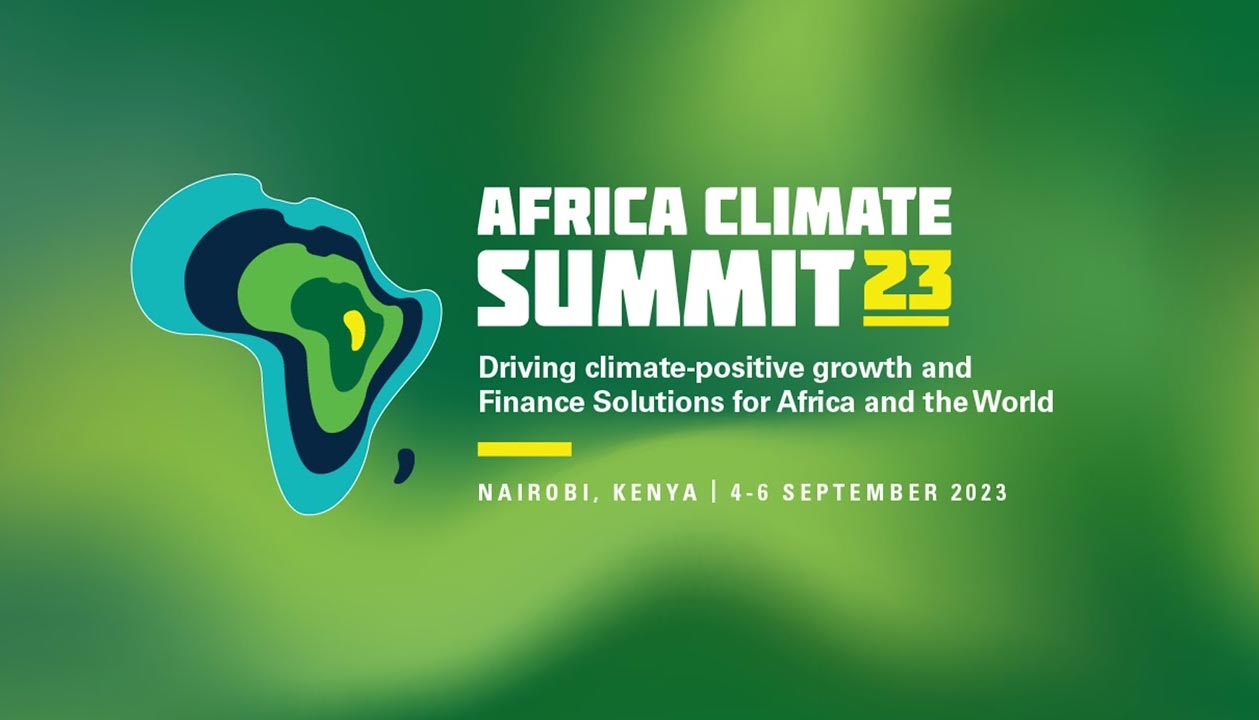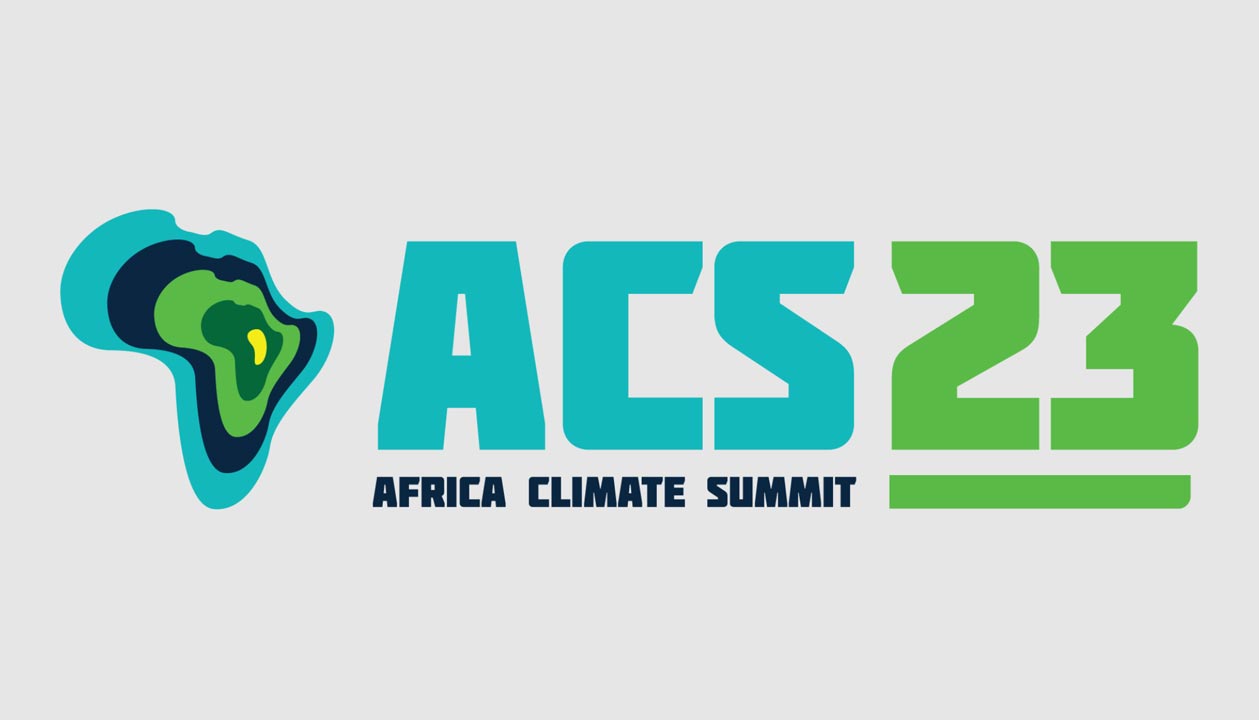Kenya has left an unerasable mark on the continent’s commitment to addressing climate change and fostering sustainable growth. With Africa at the center of the discussions, the summit witnessed remarkable achievements, including groundbreaking climate financing deals totaling a staggering $23 billion (Sh3.36 trillion). This financial injection is set to breathe life into Africa’s green investment plans, marking a significant leap towards climate action on the continent, and globally.
Kenya and several other African nations were at the forefront of this historic event which showcased the continent’s determination to tackle climate change head-on. In his address, Kenya’s President, William Ruto praised the summit for delivering on its promise and propelling Africa’s climate action initiatives to new heights. Ruto emphasized the diversity of stakeholders, including governments, the private sector, multilateral banks, and philanthropists, who collectively pledged $23 billion for green growth, mitigation, and adaptation efforts across Africa.
Energy Systems and Industry
Crucially, this funding isn’t merely symbolic; it’s a lifeline for a continent grappling with the challenges of climate change. Africa requires between $160 billion (Sh23.4 trillion) and $340 billion (Sh49.7 trillion) by 2030 for adaptation, yet the current annual flows are a mere $16 billion (Sh2.3 trillion), as reported by the Pan-African Climate Justice Alliance. This disparity underscores the urgency of increased financial commitments.
Empowering Africa’s Clean Energy Sector
A standout accomplishment of the Nairobi Summit was the announcement of a $4.5 billion (Sh657.2 billion) finance initiative, aimed at unlocking Africa’s clean energy potential. This initiative, unveiled by COP 28 president-designate Sultan Al Jaber, holds the promise of revolutionizing the continent’s energy landscape and driving sustainable growth.
Boosting Adaptation and Green Manufacturing
One of the most significant shifts observed during the summit was the increase in adaptation financing, aligning with the ambitious Nairobi Declaration. The signing of Kenya’s Green Hydrogen Strategy with the European Union (EU), which includes a grant of Sh1.9 billion (€12 million), is poised to accelerate green manufacturing and create numerous high-value jobs, along with attracting private investment.
Unlocking Africa’s Carbon Credits
Africa secured significant victories during the summit, including a commitment from United Arab Emirates investors to purchase $450 million (Sh65.7 billion) worth of carbon credits generated in Africa by 2030. These investments could be a driving force for sustainable development on the continent.
Funding Innovation: Spark Energy Services
Climate and impact fund manager Camco pledged $25 million in equity and debt funding for Spark Energy Services, a financing platform aimed at expanding solar initiatives in Sub-Saharan Africa.
Societies, Health, Livelihoods, and Economies
The United Kingdom contributed to the green momentum with a pledge of £49 million (Sh8.99 billion) for UK-backed projects across Africa. These projects aim to empower women, support at-risk communities, and assist more than 400,000 farmers in building resilience against the effects of climate change. Such initiatives reflect the international community’s recognition of Africa’s pivotal role in achieving global climate impact change for local communities.
Youth Engagement: A Vital Component
Youth engagement was another prominent theme at the Africa Climate Summit. The African Development Bank (AfDB) and the Global Center on Adaptation launched a $1 billion (Sh145.5 billion) initiative to finance youth-led businesses and startups across the continent. This commitment reflects the understanding that the future of climate action lies in the hands of the younger generation.
Land, Ocean, Food and Water
The financial pledges, the summit saw the United States commit $30 million (Sh4.38 billion) in food security and climate resilience efforts across Africa, further strengthening international cooperation in addressing climate change on the continent.
Private Sector’s Green Investments
The summit also witnessed private sector involvement, with Climate Asset Management announcing a $200 million (Sh29.2 billion) investment in green projects. Germany, on the second day of the summit, pledged a €60 million (Sh9.4 billion) debt swap with Kenya to free up funds for green initiatives.
Revaluing Natural Resources
The Bezos Earth Fund added to the momentum with a $22.8 million (Sh3.3 billion) commitment to restore critical landscapes in Kenya and the DRC Congo, Rwanda, and Burundi. These landscapes serve as vital carbon sinks, essential for mitigating climate change.
In his address, Africa Development Bank (AfDB) president Akinwumi Adesina emphasized the need for Africa to revalue its natural resources, particularly its carbon sinks like the Congo Forest, which have been undervalued for far too long. He underscored the potential for Africa to turn its natural wealth into a source of prosperity.
Despite these significant funding commitments, Africa still faces a substantial gap in financing its climate needs. Research indicates that the continent receives only 12 percent of the nearly $300 billion (Sh43.81 trillion) in annual financing required to combat climate change effectively. This underscores the importance of continued efforts and international cooperation to bridge this gap. Indeed ‘the basket is growing’ as John Kerry noted during the summit, but speed, scale and affordability remain of utmost priority as the Climate talks head towards COP28 in November.
Addressing the Summit, UN Secretary-General António Guterres called upon large emitters, particularly the G-20 countries responsible for 80 percent of emissions, to shoulder their responsibilities in the fight against climate change.
The Nairobi Declaration
The Africa summit emphasized the necessity of swift action and concrete ideas for the international financial system reform that is now being discussed, specifically to improve the deployment of the Special Drawing Rights liquidity mechanism and increase resilience to climate shocks. These sentiments were encapsulated in the Nairobi Declaration, the cornerstone for Africa’s unifying stance in the international negotiations on climate change through COP 28 and beyond.
The Africa Climate Summit in Nairobi remains a testament to the continent’s determination to take decisive climate action. Africa spoke, and the world paid attention. With the resounding financial pledges, focus on youth engagement, and bolder statements on international cooperation, Africa is poised to build a sustainable and resilient future for its people and the planet.





